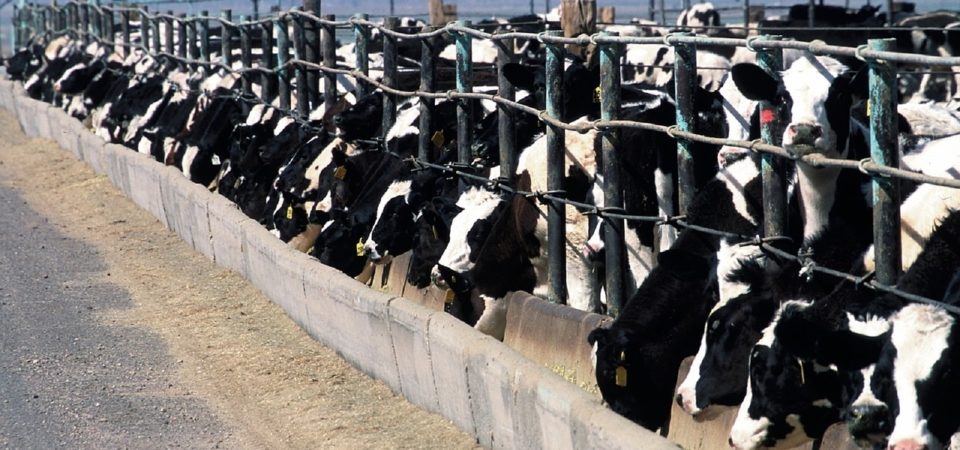Winston Churchill’s words have never been more important than today as we experience the society- and life-changing consequences of the COVID-19 pandemic.
The extent and severity of the disease is a result of ignoring decades of warnings by scientists about the general deterioration of humanity’s epidemiological environment, and specific warnings about confining live, wild animals in markets. The situation was made even more lethal by ignoring the warnings from epidemiologists and disease ecologists once it became clear that an imminent pandemic most likely arose from this practice. Many countries, including the United States, are still ignoring those warnings and the required actions to lessen the impact.
Accordingly, we should ask ourselves, “what else are we missing?” What other huge problems are hiding in plain sight where science could guide policy to avoid catastrophic future failures? For instance, there are two principal health threats that must be addressed immediately, and we must strike while the iron is hot.
The overuse of antibiotics in agriculture will cause widespread deaths from formerly treatable bacterial diseases because of the evolution of antibiotic resistance in microbes. The evolution of resistance is well-known, predictable, and obvious — not in retrospect, but now. By feeding antibiotics to otherwise healthy livestock, animals can be housed in higher densities and they grow faster.
This simple economic justification has for years spurred the US agriculture lobby to fight aggressively against calls by scientists and public-health officials to stop this practice. Why fight against sensible epidemiological limits? The short-term profits are huge. But as we see today, the long-term costs are catastrophically higher. Governmental failure to act now means the world is running out of effective antibiotics.
Because of this widespread use of antibiotics, a newly created antibiotic is effective for only a few years before resistance evolves. The evolution of resistance is accelerated because the genes that are responsible for resistance can jump from one bacterial species to another by capitalizing on the same trick we use in genetic engineering. Private companies argue that it is not economical to create a new drug and bring it to market if they only can sell it for a few years. Thus, we are all now at an increased risk of dying from formerly treatable skin, urinary-tract, or ear infections as a result.
The scientific evidence is clear, and we need politicians to wake up and focus on that evidence instead of being bribed by agriculture lobbies. Our warnings have come true — we must immediately ban the use of antibiotics in otherwise healthy production animals.
We must also reconsider our policies on prescribing antibiotics to humans. Governments must subsidize or lead the development of new antibiotics. While these suggestions emerged from scientists, they all take political will to enact. We need to force our politicians to do the right thing now, before it’s too late.
But our health problems go well beyond disease and microbial resistance. A corpus of scientific evidence shows that humans are rapidly altering the Earth’s climate by widespread reliance on fossil fuels and the destruction of the planet’s remaining natural habitats. The petroleum lobby has been actively disputing the evidence for decades and has successfully ground down the necessary political responses to nothing more than ineffective gesturing.
Yet around the world we are now witnessing the personal and economic consequences of more frequent super storms, agriculture-killing droughts, and apocalyptic firestorms like those that ravaged Australia earlier this year. These are all predictable consequences of wide-spread climate disruption.
The COVID-19 pandemic has given humanity a once-in-a-civilization opportunity to fix these wicked problems. Governments around the world will have an opportunity to use recovery funds to rebuild our infrastructure to reduce our dependence on fossil fuels. We will have the opportunity to employ millions to build new electric power grids, and the vehicles that will use it. We will have the opportunity to re-think how and where we work, and how cities can support this transition. We will have the ability to re-consider our need for long-distance travel.
After enormous loss and suffering, we will of course eventually win the battle against the current pandemic. But this is but one crisis of many — scientists’ warnings about the global implications of biodiversity loss, toxification of the Earth, destruction of soils, and climate change are dark specters on the immediate horizon. We ignore these warnings at our own peril.
Just like the lack of early action made the impact of COVID-19 much worse now, not immediately addressing our other existential threats will cost us much more in the future. Politicians need to internalize Winston Churchill’s message and henceforth use the best-possible scientific evidence to enact new policies that will allow our citizens, and our civilization, to survive and prosper.
Daniel T. Blumstein is a Professor of Ecology and Evolutionary Biology and in The Institute of the Environment and Sustainability at the University of California Los Angeles. Corey J.A. Bradshaw is the Matthew Flinders Fellow in Global Ecology at Flinders University in Adelaide, Australia; Paul R. Ehrlich is President of the Center for Conservation Biology, Stanford University.
The MAHB Blog is a venture of the Millennium Alliance for Humanity and the Biosphere. Questions should be directed to joan@mahbonline.org.
The views and opinions expressed through the MAHB Website are those of the contributing authors and do not necessarily reflect an official position of the MAHB. The MAHB aims to share a range of perspectives and welcomes the discussions that they prompt.
